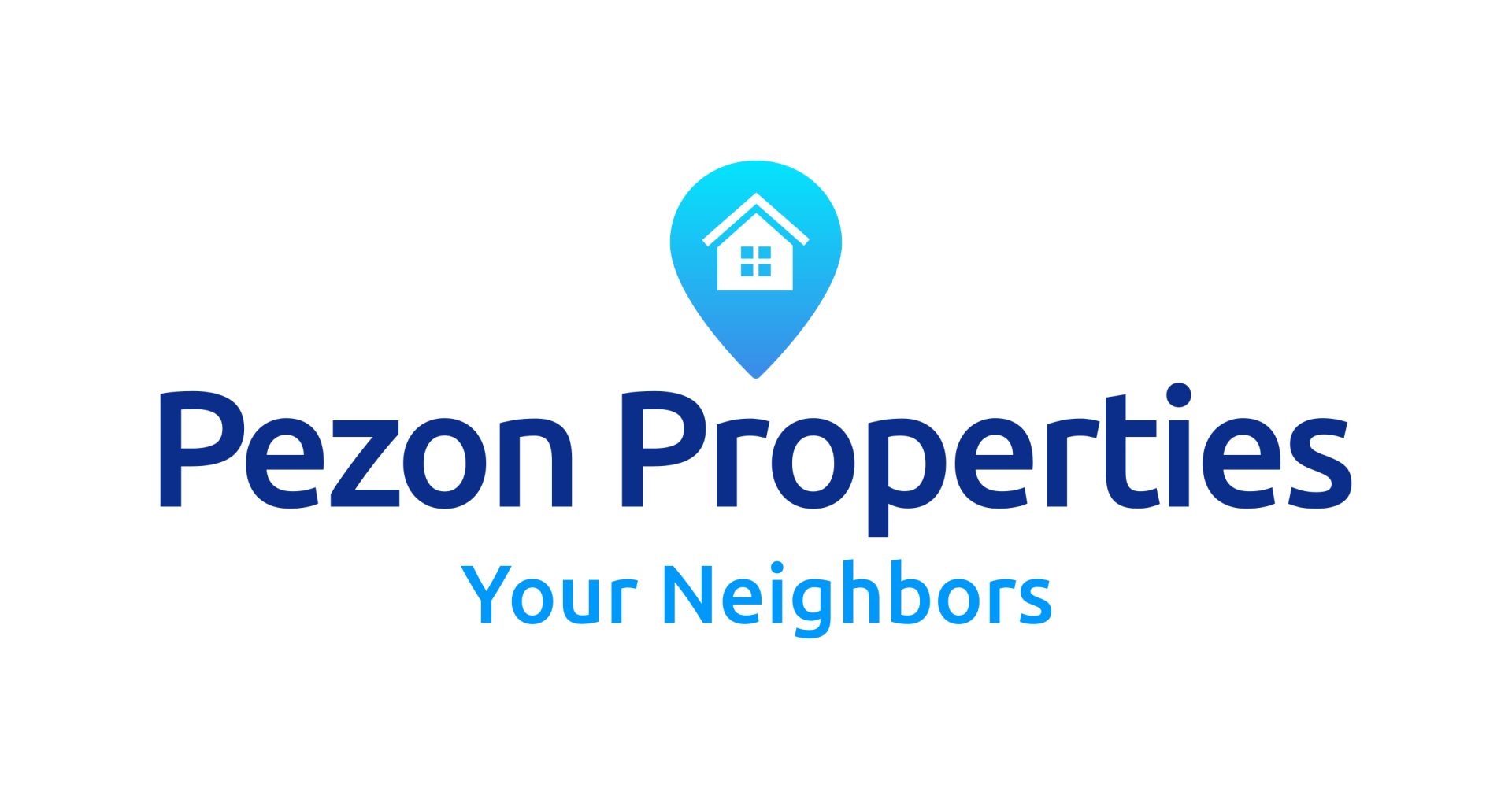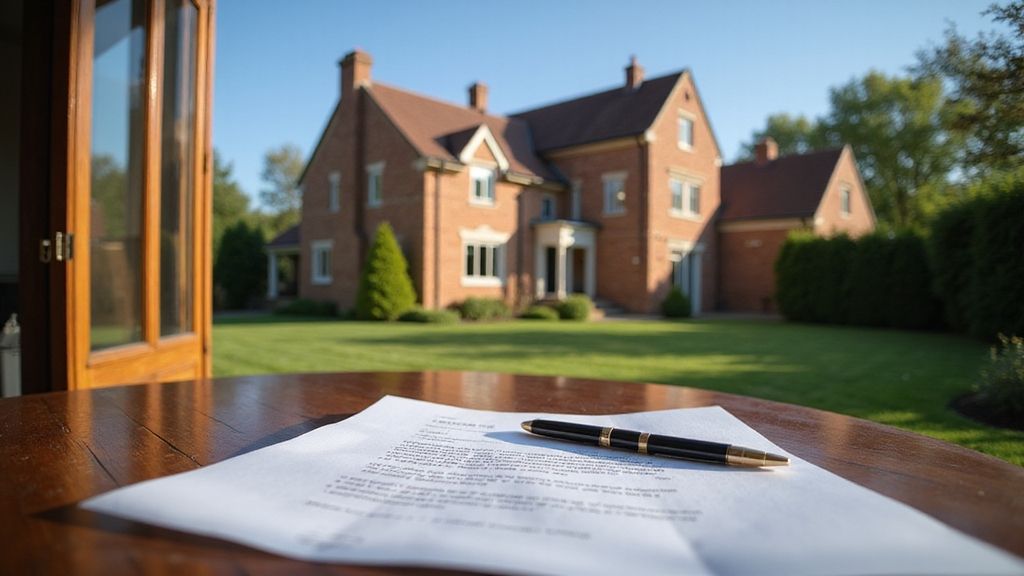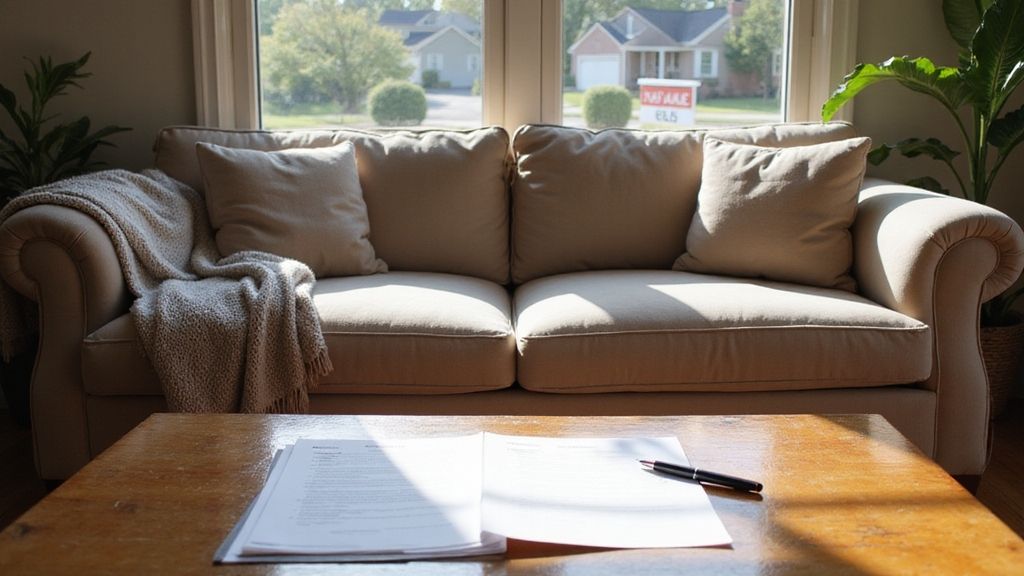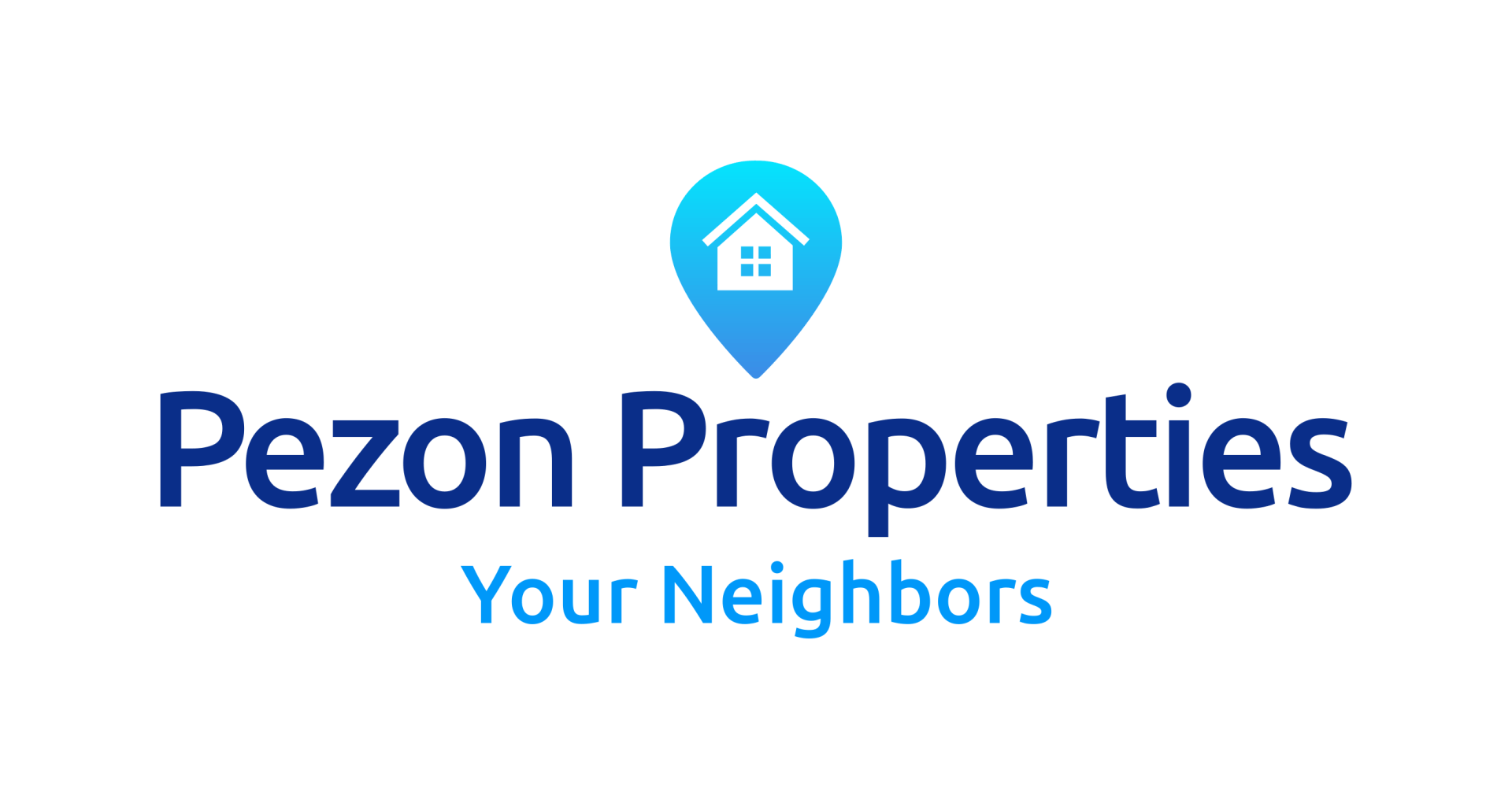Guide to Handling Multiple Offers for a Fast Home Sale
With housing inventory still tight and prices still high, odds are you might find yourself entertaining multiple offers on your house.
In fact, a recent National Association of Realtors analysis found that there were approximately 2.8 offers for every home listed in July 2022. (1)
Most homeowners dream of being able to go on with the sale process without having to schedule additional showings.
However, comparing multiple offers and selecting the best option can be difficult.

Your real estate agent is required to provide you with any offers, but they cannot tell you which ones to accept.
Choosing the wrong offer could result in losing money or dealing with difficult and untrustworthy buyers.
You should go over each offer and determine which criteria are common in your area and which are unusual or unexpected.
This can help provide context for the offer. Use this guide to discover how to handle several offers on a house and feel confident during the process.
Review the Offer Terms

The first phase is to read each offer and determine the important clauses that both sides agree on.
The offer will specify how much the buyer is willing to pay for the house and how they intend to finalize the transaction.
Every offer is a story that can be discussed with the seller. The offer’s stipulations include:
- Price: The price is often the first item that vendors consider. When assessing various competing offers, begin by determining whose price is the highest. This is a great beginning point but does not provide a complete view of the offer.
- Home Inspection: This will provide a timeframe for the inspection and whether the buyer intends to arrange one. In some markets, purchasers would waive inspections to make their bids stand out; nonetheless, inspections are necessary for house purchases with financing.
- Financing: This information indicates whether the buyer will pay in cash or will need to apply for a mortgage. If you do not receive a cash offer from a we buy houses Wilkes-Barre organization, the bid should consider the amount of the down payment and the type of loan the buyer intends to apply for.
- Closing Date: This indicates how soon you can relocate. Some people want shorter closing times so they can leave quickly.
- Additional Contingencies: The house inspection is one condition, but one of the offers you get may include others. For example, you may receive a bid with a house-sale contingency, which implies you cannot consummate the sale until your buyer sells their home first.
As a seller, choose what is most important to you in a house sale.
You can receive an offer at your selling price with various conditions.
The alternative bid could be lower but with more advantageous terms.
Which option you accept is determined by your risk priorities.
Compare The Net Proceeds

The net proceeds are the profits from the home sale after all expenses are deducted.
When you receive numerous bids, the one with the highest price may not be the most profitable.
To compare net proceeds, remove the purchase price from the remaining mortgage balance on the home and any bank fees for paying it off early.
Then, estimate the agent commissions for the transaction and deduct them from your profits.
Finally, study the terms to see if the offers include any closing cost discounts.
Your buyers may request that you pay specific expenditures in order to close swiftly.
Know Your Bottomline

When you’re selling your property and receiving many offers, deciding what to do might be difficult.
You want to obtain the greatest deal possible but don’t want to pass up a terrific opportunity.
That is why it is critical to understand your bottom line.
Your bottom line is the lowest amount of money you are willing to accept for your home.
You will walk away from the transaction if the price falls below this level.
To determine your bottom line, consider several things.
First, analyze your expenses.
What amount did you spend on your home?
What amount do you still owe on your mortgage?
Or how much are you paying for real estate legal fees and closing costs?
You must ensure that the proceeds from the sale are sufficient to meet all of your expenses.
Second, consider your future ambitions.
Are you relocating to a more costly area?
Are you intending to purchase a larger home?
You must ensure that you have enough money left over after the Wilkes-Barre quick home sale to fund your future plans. Once you’ve determined your bottom line, stick with it.
Don’t be tempted by offers that are only marginally cheaper than your desired price.
You do not want to lose money when you sell your home.
Knowing your bottom line will also allow you to negotiate with buyers.
If you receive an offer that is lower than your bottom line, politely decline and explain that you have a precise amount in mind.
They may make a higher offer if they are serious about buying your home.
Assess Buyer Qualifications

Once you know your bottom line and net proceeds, assess the risks associated with each offer.
For example, cash offers from cash home buyers in Wilkes-Barre are regarded as less risky in real estate because the financing is unlikely to fail.
A lender may deny a loan to a buyer, preventing them from purchasing your property.
Other contingencies, such as home-sale contingencies or bids with extended closing windows, influence the overall risk of the offer.
As the seller with numerous bids, you can decide if you are willing to accept a riskier bid for a bigger profit or whether you choose to take a safer approach.
Create a Deadline for Offers

Sellers may receive many offers after a busy weekend filled with showings or after an open house.
The offers arrive within a few days of each other after the purchasers have had time to consider their bids.
If you don’t want bids to keep coming in, set a deadline for accepting proposals.
For example, if you hold an open house on a Saturday, specify that you will no longer accept offers after Monday at 5 p.m.
Most buyer’s agents contact listing brokers to inform them that an offer is imminent.
When your listing broker receives this call, they can communicate the offer deadline.
Once the deadline has passed, you can review all of the proposals.
Request the Best and Final Offers

In the best-case scenario, your purchasers will engage in bidding wars with one another.
They will keep submitting bids in an attempt to outbid their competition and get your home.
A bidding war is thrilling for sellers but can also be stressful. It can prolong the offer period, prohibiting sellers from entering into a deal.
Sellers risk losing qualified purchasers who do not want to participate in the fierce competition.
One strategy to stop a bidding war is to ask for their best and final bids.
This is the absolute maximum that your buyers are willing to pay for your home.
After these offers, you will not accept any additional bids. You can select the best offer from there and proceed with the transaction.
Check for Escalation Clauses

Buyers employ an escalation clause to automatically increase their bids above rival offers.
The escalation clause specifies the maximum price a buyer is ready to pay to win the house.
Instead of engaging in a manual bidding war, this condition allows the buyer to remain competitive without having to submit several bids.
For example, a bidder might bid $475,000 on a house with a $500,000 escalation clause.
If another buyer bids $495,000, the $500,000 escalation clause on the initial offer kicks in.
However, if a third bidder offers $505,000, the first bidder will lose because the bid exceeds their escalation clause limits.
When you first receive an offer, you can check to determine if it has an escalation clause.
This offers you an idea of how keen the possible buyer is to purchase your home.
Consider a Counteroffer

When you receive many offers, you can still place a counterbid.
Your purchasers understand that there are numerous interested parties, and they want to make their bids as appealing as possible.
If something is holding down a bid, such as a longer closing period, some purchasers may be willing to adjust their offers to be accepted.
You can also send numerous counteroffers to bidders.
This might help you decide which ones are most adaptable to your requirements.
Remember that purchasers can walk away at any time, so make sure your counter offers are acceptable.
Your goal is to reach a fair arrangement for all parties involved, as each wants the transaction to be successful.
Notify All Buyers

After reviewing each final offer, choose your potential we buy houses Scranton buyer.
Let your bidders know when you will make a decision, just as you set a timeframe for receiving offers.
Your purchasers must know if they are proceeding with the transaction or returning to the house-hunting phase of the process.
You are welcome to provide comments to bidders who made bids that you did not accept.
You may highlight how the highest bid was all-cash or had fewer conditions.
Often, these circumstances are beyond your potential consumers’ control, but they can still discover why they lost.
They may make stronger offers on their next result as a result.
What to Do After Accepting an Offer?

After accepting an offer, the home sale process only begins.
Both buyers and sellers must work to meet all of the standards outlined in the sales contract. Unless you accept a cash house purchase in Wilkes-Barre, your buyer will need to complete the mortgage application process.
They will also set up a home inspection.
As the seller, you will fulfill any agreed-upon contingencies and begin packaging.
Here are a few things to consider after accepting the greatest offer for your home.
Finalize the Contract
After you accept the best and highest bid, the successful bidder will make an earnest money deposit to show that they are serious about the home.
They will conduct inspections and appraisals to ensure the property is in good shape.
This is where a few issues can arise.
If your house has severe flaws that you were unaware of, your buyer may renegotiate the price based on the necessary repairs.
If there is an assessment gap, which means the evaluated value is lower than the offer, they may attempt to renegotiate.
As the seller, you can go through these negotiations to keep the buyer or seek alternative bidders who might be willing to ignore the repair requirements and appraisal concerns.
For instance, buyers who pay cash for houses in Wilkes-Barre can purchase your home without requiring you to complete any renovations.
Keep in mind that the purchasers you rejected earlier may have since moved on to another property.
Also, if you were unaware of difficulties before the first buyer’s inspection but are now aware of them, you must communicate the data to other possible purchasers before they bid.
Prepare for Potential Backup Offers
Accepting backup offers if the purchase goes through is one method for sellers to protect themselves.
Simply said, if your current buyer walks away from the agreement, you notify the backup buyer that their bid has been approved.
If you receive several offers on your home, inform the rejected bidders that their bids can be saved as backup offers if desired.
Your realtor can also continue to promote your house while it is under contract as long as they clearly state that they are searching for backup offers.
The biggest advantage of a backup offer is that you do not have to remarket your home or postpone the sale process if your buyer cancels.
However, there are certain disadvantages to maintaining backup offers.
First, your backup buyers may have moved on by the time your present buyer cancels.
They may withdraw their offer when you need it the most.
Next, your other buyers may withdraw if they encounter the same problems as your current one.
For example, potential purchasers may be scared away if your home has serious foundation difficulties.
Determine whether the purchase fell through due to your buyer’s inability to obtain financing, their falling in love with another house, or because of you or your home.
When you sell to your backup buyer, you may need to make repairs or change your expectations.
You can always choose to sell my house fast Wilkes-Barre to cash buyers if you’re afraid that your backup buyers will require you to complete additional work on your home.
Dealing With an All-Cash Offer

Dealing with an all-cash offer for your house might present new chances and challenges.
When a buyer offers to pay cash for your house, the requirement for financing is eliminated, potentially making the process smoother and speedier.
To manage an all-cash offer efficiently, begin by validating the buyer’s proof of money to guarantee they have accessible funds.
While an all-cash offer may appear enticing, it is critical to thoroughly consider the terms and circumstances of the offer beyond the purchase price.
Consider contingencies, closing dates, and any other stipulations that may affect the transaction.
Consulting with your estate attorney can provide vital insights into the benefits and potential hazards of an all-cash offer, allowing you to make an informed decision that is in line with your objectives.
Keep in mind that an all-cash offer is not always the best decision, especially if there are other offers with better terms or higher costs.
Balancing financial stability with the overall parameters of the offer can help you make the best selection for your specific scenario.
Remember to Respond Promptly

Time is of the essence when dealing with many bids on your home.
If they do not receive a response from you within a reasonable time frame, they are likely to pursue other possibilities.
This implies you should answer quickly to each offer you get, preferably within 24-48 hours.
One method to make this process easier is to create a system for managing multiple offers.
You can make a spreadsheet to track each offer, including essential facts such as the buyer’s name, the price they’re offering, and any caveats or restrictions tied to the offer.
This can help you keep organized and respond faster when you need to make a decision.
Another technique for responding swiftly is to plan ahead of time.
Before you list your house, you should know exactly what you’re looking for in a buyer and what your bottom line is.
This will make it easy to examine each offer as it arrives and respond more swiftly when you are ready to accept one.
Remember that being quick to answer does not need you to rush your decision.
Take the time to carefully analyze each offer and ensure you’re making the best decision for you and your family.
But don’t wait too long to react; if you do, you may miss out on an excellent opportunity.
By remaining organized, understanding your bottom line, and responding fast to every offer you receive, you will know how to properly handle multiple offers on your residence.
Conducting Due Diligence
Give us a call anytime at 484-484-0971 or fill out this quick form to get started today!
Get A Fair Cash Offer On Your House

About the author
Mathew Pezon
Mathew Pezon is the founder and CEO of Pezon Properties, a cash home buying company located in Lehigh Valley, Pennsylvania. With several years of experience in the real estate industry, Mathew has become a specialist in helping homeowners sell their properties quickly and efficiently. He takes pride in providing a hassle-free, transparent, and fair home buying experience to his clients. Mathew is also an active member of his local community and is passionate about giving back. Through his company, he has contributed to various charities and causes.















